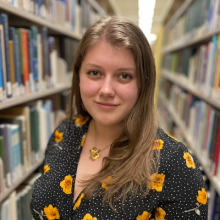Canadian Immigration Updates
Review details about the recently announced changes to study and work permits that apply to master’s and doctoral degree students. Read more
Overview
Biomedical Engineers apply their knowledge in engineering, biology, and medicine to healthcare and medical device industries. Biomedical Engineering is a distinct field that encompasses engineering disciplines, biology, life sciences, medicine, clinical applications, and the improvement of human health. Since 2006, our MASC program has trained students in the fundamentals of Biomedical Engineering, providing extensive research experience in biomechanics, biomaterials, biochemical processing, cellular engineering, imaging, medical devices, micro-electro-mechanical implantable systems, and physiological modeling, simulation, monitoring, and control, as well as medical robotics. Graduates continue on to PhD programs as well as research and development positions in industry and other institutions. A professional program, Master of Engineering, is also available.
What makes the program unique?
The Biomedical Engineering Program at UBC is a part of the School of Biomedical Engineering. This unique interdisciplinary structure provides students with unparalleled access to engineering experts across varied Biomedical Engineering research areas at UBC. It emphasizes a balance of biomedical engineering and life science study with a focus on clinical and industrial application. Our graduates have gone on to become industry leaders, especially in the medical device industry, and provide a network of professionals within the community.
Biomedical Engineering at UBC is the only program in Canada to offer the Engineers in Scrubs (EiS) training program. The EiS program began as an NSERC-funded Collaborative Research and Training Experience (CREATE) program designed to foster innovation in medical technology by training biomedical engineers in clinical environments. Students receive a significant portion of their training in hospital settings, and the program focuses on the medical technology innovation process. This program complements the research training of MASc and PhD students and allows them to work closely with medical professionals in identifying clinical problems and developing a solution.
Quick Facts
Program Enquiries
Admission Information & Requirements
Research Information
Tuition & Financial Support
Career Options
Enrolment, Duration & Other Stats
Research Supervisors
Sample Thesis Submissions
Further Information
Program Enquiries
Contact the program
Departments/Programs may update graduate degree program details through the Faculty & Staff portal. To update contact details for application inquiries, please use this form.

Curious about life in Vancouver?
Find out how Vancouver enhances your graduate student experience—from the beautiful mountains and city landscapes, to the arts and culture scene, we have it all. Study-life balance at its best!




